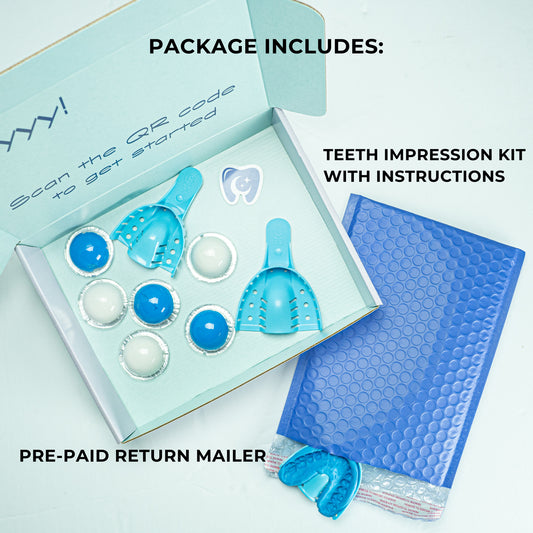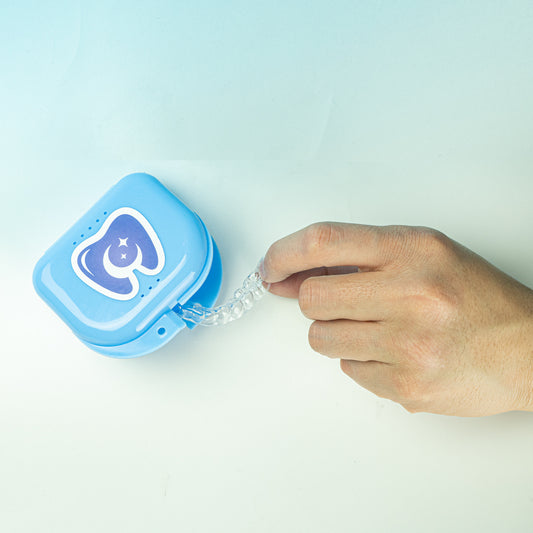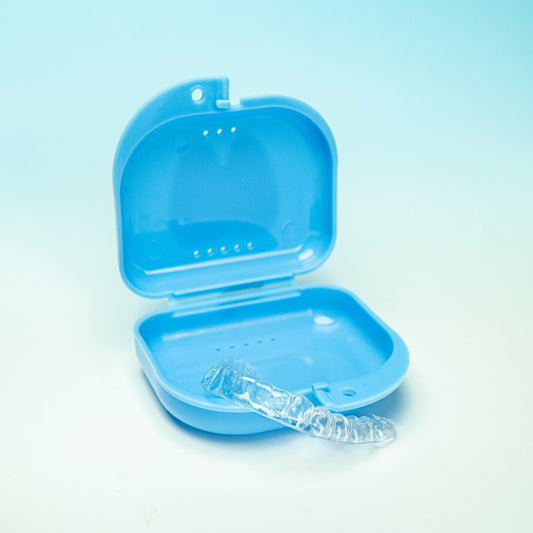What Is Bruxism?
Information about Bruxism
Our complete guide to bruxism: What it is, how to identify it, and how to correct for bruxism.
What is Bruxism?
Bruxism is a medical condition in which an individual grinds or clenches their teeth, causing them to experience dental or jaw pain and damage. Those who experience bruxism often suffer from grinding teeth subconsciously throughout the day, or at night—a condition known as sleep bruxism.
Bruxism can be related to an influx of stress and anxiety, so in some cases, the grinding or clenching of teeth may only be temporary, while for others, it may become a more permanent habit that requires immediate attention. Other likely causes of bruxism are sleep apnea, an abnormal bite, or missing/crooked teeth.
How to know if you have bruxism?
Many who suffer from bruxism are unaware of their condition until symptoms present themselves. This is because most individuals who have bruxism, suffer from a form of it that only occurs while they are sleeping and therefore unconscious. Even many individuals who suffer from general bruxism may not be aware of their condition if they are subconsciously grinding their teeth throughout the day. If bruxism becomes a chronic condition and treatment is not sought in a timely fashion, one could cause serious damage to their teeth, enamel, and jaw muscles; for this reason, it is important to know the symptom of bruxism in order to resolve the problem before it develops into a more serious condition.
Some of the most common symptoms of bruxism include:
- Teeth grinding
- Tooth pain
- Jaw pain
- Tightness in the muscles around the jaw
- Locked jaw, or the inability to open one’s mouth to the regular aperture
- Chipped or flattened teeth
- Damaged enamel
- Increased tooth sensitivity
- Headaches
Sometimes when the condition is severe, individuals suffering from bruxism may even experience clenching teeth or grind their teeth loudly enough to attract the attention of loved ones.
If these symptoms occur, it is important to seek dental or medical attention. A dental professional will examine you for signs of bruxism, such as tenderness of the jaw, and any wear of the natural grooves or curvature of the teeth, to determine an appropriate treatment plan.
While the exact cause of bruxism is unclear, there is a strong correlation between the development of the condition and certain psychological and physical factors. Stress, anxiety, and tension are common factors that can increase one's risk of bruxism. Other risk factors include hyperactive personalities, anger management difficulties, and the use of stimulating substances like nicotine and caffeine. Those suffering from certain medical conditions, such as Parkinson's disease, may also develop bruxism as a complication of their condition or medical treatment.
What are the effects of bruxism?
If left untreated, bruxism can have a severe impact on your dental health. Some of the effects of mild to moderate bruxism include tooth and jaw sensitivity, worn enamel, inflamed or receding gum lines, jaw tension, stiffness of the shoulder muscles, irregular sleep patterns, and looseness of the teeth.
In more extreme or chronic cases of bruxism, individuals may experience a locked jaw that cannot open or close entirely, and broken or chipped teeth. Untreated cases can lead to complications, such as temporomandibular joint (TMJ) disorders. TMJ results in facial pain around the jaw, and may induce a clicking sound when the mouth is opening or closing.
Severe bruxism can make it difficult for individuals to chew and brush their teeth, negatively impacting their dental and nutritional health.
Without the proper treatment and preventative methods, bruxism can lead to more serious dental and medical complications that could require operations and implants such as root canals, crowns, bridges, and in some cases even dentures.
How to treat bruxism?
The quickest and easiest solution to controlling bruxism is to invest in a dental guard. Effective mouth guards will prevent you from grinding your teeth, providing much-needed protection. EasyTeethGuard offers custom teeth grinding mouth guards that are designed to fit the exact mold of your teeth. When you purchase a mouth guard for grinding teeth, you will receive an at-home lab kit to create the necessary impression of your teeth to mold the ideal mouth guard.
Rather than grinding your teeth at night, the mouth guard will take the brunt of the force, saving your teeth and jaw. Because these mouth guards are customized to fit your teeth, they provide a comfortable fit that will not only prevent you from damaging your teeth but also allow you to sleep peacefully.
If stress is a major factor that could be causing your bruxism, you may want to visit your doctor or dentist to talk about ways to minimize anxiety and tension. Some of the options a doctor or dentist may prescribe are stress counseling, an exercise regimen, physical therapy, or a prescription based muscle relaxant.
Sleeping disorders could play a part in the grinding as well; if so, try to avoid or reduce the intake of caffeine and caffeinated food products. Avoid alcohol, as it tends to amplify the grinding after it has been consumed. Reduce the amount the jaw has to work by cutting back on chewing gum, allowing more resting time, and avoiding habits like chewing on pencils and erasers. If need be, before bed, place a warm washrag on your cheek to help soothe and relax your muscles.
The best way to treat bruxism is through a combination of these methods. Making changes to your lifestyle in order to reduce stress and eliminate stimulating substances from your diet are important steps to reducing the severity of your condition. However, the importance of a quality mouth guard cannot be understated as this device will prevent your condition from causing possible irreparable damage to your dental health. By investing in a custom mouth guard, you are not only protecting your teeth from immediate damage but also preventing more severe conditions from developing in the future as a result of your condition. In addition, by using a mouth guard you may be able to return to a regular sleep pattern, in turn reducing your stress level as a result of being rested and energized.
Order your custom mouth guard today to see for yourself the difference a quality dental guard can make to your oral health and quality of life.
-
The Soft Night Guard
Vendor:Softest and Most ComfortableRegular price $89.00Regular priceUnit price per -
The Hybrid Night Guard
Vendor:Balance Between Comfort and Durability (Most Popular!)Regular price $109.00Regular priceUnit price per -
The Hard Night Guard
Vendor:Most Durable (for Heavy Grinders)Regular price $99.00Regular priceUnit price per



